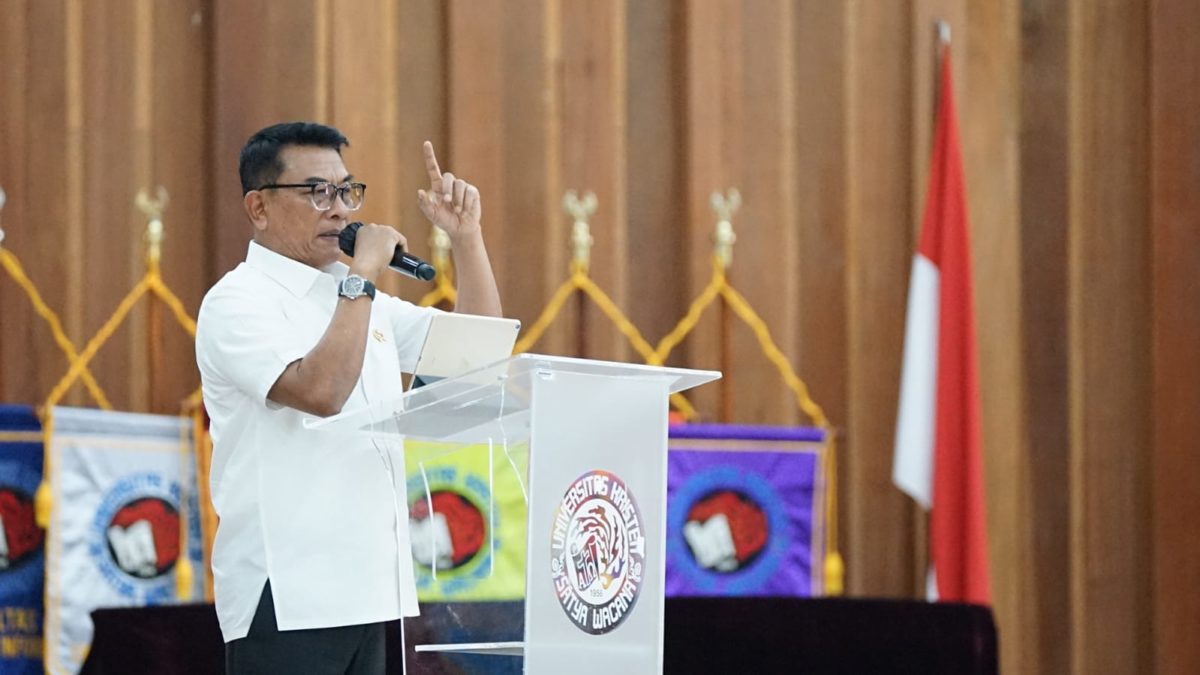Salatiga – Citing the latest Bloomberg survey, Presidential Chief of Staff Moeldoko said an optimistic outlook for Indonesia’s economy amid global uncertainty. The survey listed Indonesia as the second last country out of 15 countries with recession risk, having a chance of 3% to go into recession.
Following India with 0 percent risk of recession, Indonesia is having a very small chance to be impacted by the global economic fallout due to prolonged COVID-19 pandemic and raging geopolitics situation.
“The survey’s result shows that our domestic economy is resilient despite the escalating global uncertainty,” said Moeldoko during a national seminar held by Satya Wacana Christian University, in Salatiga, Central Java, Monday (18/7).
The good result, according to Moeldoko, can’t be separated from the government’s agility and quick response towards the global economic crisis threat. In the energy sector, for example, the government continues to expand fuel subsidies up to Rp 520 trillion.
“However, rolling out subsidies with no end to it will potentially disrupt the state budget. For that, the subsidy scheme shall be changed. It will no longer subsidize goods, but it will aim at the people who need it the most,” he explained.
The former TNI Commander said the government had also shifted its focus to the threat of a food crisis, as proven by the increased productivity in the agricultural sector to meet domestic food consumption needs, which amounted to 2.5 million tons per month.
“We are no longer importing rice for three years in a row now. Even better, our rice production is in surplus. The government is also diversifying food. We are now starting to massively develop sorghum, sago, and corn to answer the food crisis challenges,” continued Moeldoko.
Nevertheless, managing a country amid the global uncertainty is not easy, indeed, said Moeldoko. In addition to the prolonged COVID-19 pandemic, the world is shaken by Russia’s invasion of Ukraine. Not only that the geopolitical tension brings disruption to the food supply chains, it also leads to the skyrocketing prices of various commodities.
Now to that, Moeldoko said that a nation should be able to adapt to change, to speed up developments in all fronts, to take risks through constitutionally adopted policies, to be ready to face the global complexities, and to respond faster towards any surprises that will occur due to technological advances.
